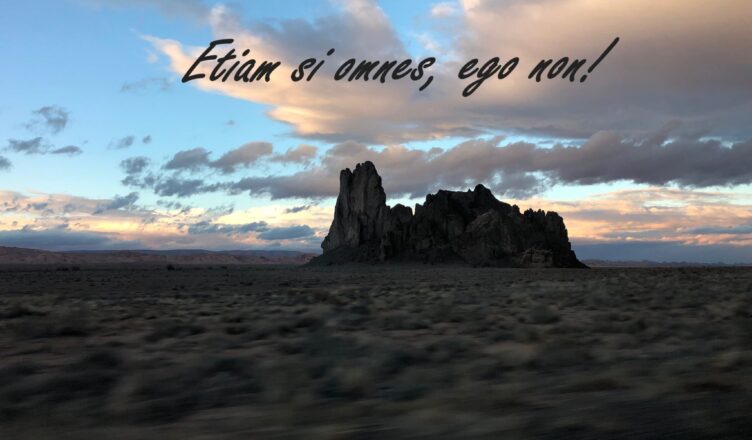by Geena SCARPETE WALTERS
I often find myself dissecting the wrongs of a society that, despite our evident progress, is still breathing the remnants of a long-dead world. To do the right thing should not be a concept taken so easily. In fact, it should be at the top of the principles and values that define every individual. But what is the right thing to do? Or how do we define right and wrong in a society that too often defends the wrongs and fights against the rights? Have we begun to misuse these two concepts, or are we just trying to adjust to a world that refuses to embrace the true meaning of them? Although it might look like a problem of semantics, it is actually indifference toward defending those who are being harmed in a world that still asks questions about one’s ethnicity, race, age, gender, sexual orientation, or political beliefs. To do the right thing is not a polysemantic notion whose definition depends on various criteria, such as the culture in which you have been raised or the traditions of a religion that taught you to hate more and love less.
Listening to one of the authors I sincerely admire, historian Noah Yuval Harari, in a conversation with Facebook founder and CEO Mark Zuckerberg, I am reminded of the imbalance of power throughout the world that, according to Harari, causes my pain to be differently perceived than your pain. “The pain of somebody in Indiana reverberates far more than the pain of somebody in Honduras or Philippines,” he states. But shouldn’t we all strive for the same rights, shouldn’t we all have the same chances, privileges, resources, etc.? Today, in this imbalanced world of prejudicial treatment of different categories of people, especially on the grounds of race, age, and sex, all someone can blame is an unfortunate destiny of being born in Bangladesh, so to say, and not Norway. And this is as unjust as it can be, isn’t it?
In an era of high-speed internet, advanced technology, and social media, how can we be so connected with everyone and everything and yet so dispassionate about the world around us? What has changed considerably in the past decades? Have advances in technology and easy access to information made us superficial and indifferent to the main issues that our planet is confronted with? Are online communities more meaningful now than physical ones? Did the former replace the latter, or do they coexist in a world that, no matter what, tends to be more divided than united?
As Harari has mentioned in his writings and many interviews, there is a great difference between bringing people together and harmonizing them. When people from different walks of life converge, conflicts and tensions arise because of our different expectations, views, orientations, and ideals. Learning how to accept and understand those from a different background than ours would undoubtedly create harmony. But the question is, can we really embrace differences when history proves that it conflicts with human nature? Yes, and the solution is trust. Today, what mankind lacks is trust; trust in the different color of one’s skin, in a different culture, in one’s different education, in minorities, in those who can’t speak our language, in those who believe in a different religion. In short, trust in those who are not like us. And I keep asking myself, wasn’t the initial mission of social networking intended to connect the world? Instead, we see that most of us started to use social media not as a method to overcome our differences and discrimination of any sort, but to criticize those differences and validate our own prejudices.
They say progress often brings issues, and I believe that one of the greatest negative consequences that technology and social networking have caused is superficiality. We can easily admit this. What has social media taught us? That, as Harari tells us, “We can easily unfriend a friend on Facebook, but we will never be able to unneighbor a neighbor.” How often do we really practice our social skills in an era of online videogaming and homeschooling? Are we expected to hang out with our friends by IM’ing on Facebook and tossing up photos on Snapchat or getting to know each other better over a coffee or a concert? If one day, your online friend posts something that does not meet your expectations, you can forever delete him from your network – and life – with a simply click of a button. So what kind of people are we nowadays? How do we solve this great paradox of feeling enclosed in an open world? Are we busy creating freedom online and stone walls outside? Did the liberty of social networking cause people to become addicted to the confines of their homes? In fact, are we experiencing one of the greatest illusions that mankind has ever created?
Despite the expression of freedom with which social networks herald to us, we are actually losing our ability to truly talk about ourselves and communicate in earnest in what undoubtedly is the most effective manner: face to face. We become scared, concerned, afraid of how the physical world perceives us the more we confine ourselves to boxed communication. We prefer the comfort zone of our online accounts because no one will directly judge us, and if they do confront us, we don’t really have to deal with it. We can hide their comments or block them altogether, removing them from our system at the press of a button.
Therefore, Harari wonders if the internet has “connected people or fragmentized them”? The truth is that we tend to be more isolated than united. When mankind was given the chance to move from physical neighborhoods to online communities, we assumed a risk that perhaps we never considered years ago: having been given access to so many people’s lives all at once, we have never been so anonymous and insignificant amid the masses with whom we virtually cross paths each day. We have inadvertently increased competition for meaningless attention in such a diverse world; and in a community as big as we have become, diversity only further divides us.
Technology advances are not necessarily good or bad; like a weapon, it ultimately depends on how we decide to use it. Hence, do we use our social media to provide a good example? Do we use our own words and actions to make this world a better place? In a world where people can be manipulated on a scale like never before, our main concern should be not to allow abuses to become a norm. In a world that invests billions of dollars in technology like artificial intelligence and advanced analytics to pick up on individual buying habits and personal interests, as Harari says, “We should be more afraid of robots always obeying orders than of robots rebelling against humans.” In a world where wrong passes all too often as right, we should question more those who have a voice and decide better who we give a voice to represent us.
In a divided world, you should start asking yourself where do you come from and where do you want to go? In a world where money speaks louder than principles, where morality and efficiency no longer go hand in hand, you should ask yourself if it is still worth fighting for your principles and moral values in an environment where those who don’t agree with you can simply turn you off. In my world, where good things still happen and where principles and moral values do count, what one should do when confronted with a differing view held by the majority? One ought to maintain his own opinion and moral judgement. Because even if all others, not I.
Photo credit: Geena Scarpete Walters

